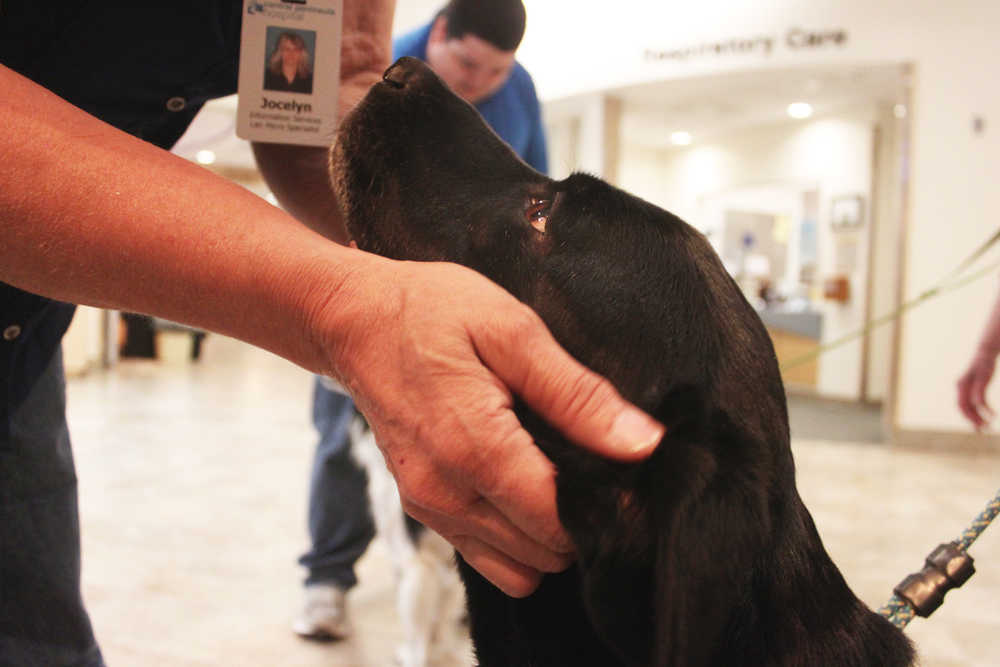With chocolate eyes Bandit, a 6-year-old border collie and blue heeler mix stared eagerly up at his owner, Lynn Whitmer, Wednesday in the lobby of the Central Peninsula Hospital.
Returning the gaze, Whitmer pulled back her right hand, as Bandit attempted to playfully tap it with his dark nose.
Whitmer and Bandit spent an hour in the hospital lobby to put help highlight the ongoing Animal Assisted Therapy program at the hospital, said program coordinator Kathy East. The pair have been partners for the past five years in Animal Assisted Therapy programs at schools and hospitals in Alaska and Wyoming.
Once a year East puts together a showcase of the animals and their trainers in the CPH volunteer-driven program to meet the staff and patients frequenting the facility. She said letting the patients know they have the option, and making staff aware of the program is important.
CPH is run off of the Planetree model, which views animals as a method of healing, East said. The certified dogs are brought to meet patients at their request, and will spend an hour sitting and interacting in their rooms.
Each animal must be trained and certified through the national non-profit Pet Partners, East said. A certification must be renewed every two years.
East said she has heard of cats, birds, guinea pigs, rabbits and even a mini horse being certified as therapy animals. At Central Peninsula Hospital only dogs are currently in the program, she said.
Standards for certification include temperament, physical condition, health and ability to remain undisturbed, according to petpartners.org. The animal must be able to obey commands such as sitting, staying and dropping an object. Age and type of animal are not significant factors.
East said she has seen a dog reverse the demeanor of an angry, aggressive patient into a quiet and tender one after interacting with the animal.
East frequently brings her black Lab, Ben, to the hospital. She said each visit is timed at about an hour, because the animals will lose interest and not be able to perform as well after long periods.
Whitmer said it also helps for the therapy program when a trainer knows their animal very well. Bandit is very perceptive to people’s emotions, she said.
“Bandit is very spoiled, very loving and very loyal,” Whitmer said. “ He trusts me and I trust him.”
As staff members walked through the lobby, Whitmer invited her to meet Bandit. One woman declined, saying she is “not a dog person.” Whitmer said people do turn down the chance to play with therapy dogs from time to time; it is important to respect their needs.
“Usually a meeting is planned ahead of time,” East said. “We talk to the patient’s nurse and make sure we can come in.”
Whitmer said the CPH program is very popular. She said some days when she brings in Bandit, he has a swarm of staff and visiting patients surrounding him.
Kelly Sullivan can be reached at kelly.sullivan@peninsulaclarion.com.

